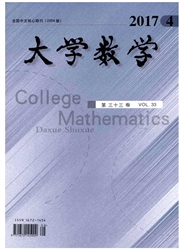

 中文摘要:
中文摘要:
将公平偏好行为引入到闭环供应链中,将销售努力和回收努力分别引入到市场需求函数和回收函数中,构建了相应的定价决策模型,比较并分析了不同偏好主体下公平偏好系数对供应链决策变量和系统各利润的影响.分析得出,不同偏好主体下公平偏好系数对供应链定价策略和系统利润都有不同影响,公平偏好行为是供应链双方获取闭环供应连系统利润分配的一种有效手段.同时,这种公平偏好性可能会造成闭环供应连系统利润的损失和社会环保程度的降低,那么正确面对公平偏好变得尤为重.最后以数值仿真分析了文中重结论并给出相应的管理启示.
 英文摘要:
英文摘要:
Fairness preference is introduced into a closed-loop supply chain. Then the sales effort and the recycling effort are introduced separately into the market demand function and the recovery function. Corresponding pricing decision models are established . The influence of the preference coefficient on the decision-making strategy and system profit of supply chain is compared and analyzed. Analysis results show that the preference coefficient under the two different concern subjects has different influence on the pricing decision strategy and system profit of the supply chain. The fairness preference behavior is an effective means to distribute the system profit of the closed-loop supply chain for the manufacturer and retailer. Meanwhile, the fairness preference in the closed-loop supply chain may lead to the loss of system profit and poor the social environmental condition, so facing fair preference reasonably becomes particularly important. Finally, we analysis some reached conclusions in this paper and give corresponding management by numerical simulation.
 同期刊论文项目
同期刊论文项目
 同项目期刊论文
同项目期刊论文
 期刊信息
期刊信息
